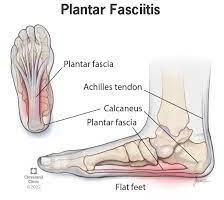A 25-year-old female presents with amenorrhea and hirsutism and is diagnosed with polycystic ovary syndrome (PCOS). Lab testing will most likely reveal:
genetic cancerous mutations.
hyperinsulinemia
cortisol excess.
estrogen deficit.
The Correct Answer is B
Choice A rationale: PCOS is not typically associated with genetic cancerous mutations.
Choice B rationale: Insulin resistance and hyperinsulinemia are commonly associated with PCOS, contributing to its pathophysiology.
Choice C rationale: While cortisol abnormalities can cause similar symptoms, it's not a primary finding in PCOS.
Choice D rationale: PCOS often involves hormonal imbalances, but it's not characterized by an estrogen deficit.
Nursing Test Bank
Naxlex Comprehensive Predictor Exams
Related Questions
Correct Answer is C
Explanation
Choice A rationale: This is a general description of an imaging test, such as an X-ray, ultrasound, or MRI, which can show the structure of the organs but not the mucosal lining.
Choice B rationale: This is a general description of a blood test, which can show signs of infection, inflammation, or anemia, but not the cause of these problems.
Choice C rationale: This exam is called a colonoscopy, which involves inserting a flexible tube with a camera and light into the anus and advancing it through the colon. A colonoscopy can reveal signs of inflammation, ulcers, bleeding, or narrowing of the intestinal wall that are characteristic of Crohn's disease. A biopsy can also be taken during the procedure to confirm the diagnosis.
Choice D rationale: This is a general description of a urine test, which can show signs of kidney problems, urinary tract infections, or dehydration, but not Crohn's disease.
Correct Answer is A
Explanation
Choice A rationale: Plantar fasciitis typically presents with severe pain in the arch of the foot, especially during the first steps in the morning or after prolonged periods of rest.
Choice B rationale: Multiple toe deformities are not typically associated with plantar fasciitis.
Choice C rationale: Redness and severe swelling are not typical findings in plantar fasciitis.
Choice D rationale: Numbness and paresthesia are not common findings in plantar fasciitis.
 |
Whether you are a student looking to ace your exams or a practicing nurse seeking to enhance your expertise , our nursing education contents will empower you with the confidence and competence to make a difference in the lives of patients and become a respected leader in the healthcare field.
Visit Naxlex, invest in your future and unlock endless possibilities with our unparalleled nursing education contents today
Report Wrong Answer on the Current Question
Do you disagree with the answer? If yes, what is your expected answer? Explain.
Kindly be descriptive with the issue you are facing.
